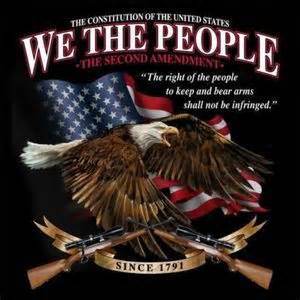A Non-violent Felon’s Right to Bear Firearms
 The North Carolina case Britt v. North Carolina serves as a breakthrough precedent for North Carolinians who lost their right to bear arms due to felony charges. In 1979, Barney Britt plead guilty to PWISD methaqualone (possession with intent to sell and deliver–a central nervous system depressant). He was sentenced to 4 months in prison and probation thereafter. At the end of his sentence in 1987, Mr. Britt’s rights as a North Carolina citizen were fully restored, including the right to bear arms. In 2004, N.C.G.S. §14-415.1 declared it unlawful for any felon to bear any type of firearm despite their reason. Britt sued the state arguing that this new law was unconstitutional. After several hearings and appeals, his case was taken to the Supreme Court where the jury ruled in Britt’s favor. Arguably, Britt served his sentence as a convicted nonviolent felon, and 30 years later had not committed any crime despite that he possessed firearms. Ultimately, Britt had “affirmatively demonstrated that he is not among the class of citizens who pose a threat to public peace and safety” and therefore, a regulation that prohibited him from possessing a firearm could not be “fairly related to the preservation of public peace and safety.”
The North Carolina case Britt v. North Carolina serves as a breakthrough precedent for North Carolinians who lost their right to bear arms due to felony charges. In 1979, Barney Britt plead guilty to PWISD methaqualone (possession with intent to sell and deliver–a central nervous system depressant). He was sentenced to 4 months in prison and probation thereafter. At the end of his sentence in 1987, Mr. Britt’s rights as a North Carolina citizen were fully restored, including the right to bear arms. In 2004, N.C.G.S. §14-415.1 declared it unlawful for any felon to bear any type of firearm despite their reason. Britt sued the state arguing that this new law was unconstitutional. After several hearings and appeals, his case was taken to the Supreme Court where the jury ruled in Britt’s favor. Arguably, Britt served his sentence as a convicted nonviolent felon, and 30 years later had not committed any crime despite that he possessed firearms. Ultimately, Britt had “affirmatively demonstrated that he is not among the class of citizens who pose a threat to public peace and safety” and therefore, a regulation that prohibited him from possessing a firearm could not be “fairly related to the preservation of public peace and safety.”
A year after the Supreme Court ruled in Britt’s favor, North Carolina General Assembly enacted N.C.G.S. §14-415.4, allowing a person convicted of a nonviolent felon to bear firearms, as long as they are in compliance with the statute criteria (i.e., having served their sentence, convicted of only one felony—or multiple felonies arising from the same event, etc). The law took effect on February 1, 2011.
It will be interesting to see how North Carolina’s new law will be observed nationally. With such controversy over the right for even non-felon citizens to bear arms, it’s likely that many Americans will disagree with this statute. As we know, federal authorities and courts hold the final decision on federal law, but this new law may accomplish the General Assembly’s goal of restoring firearm rights to those convicted of a felony in other states – following the example of North Carolina – if not nationwide.
By Amber Younce, Legal Assistant
